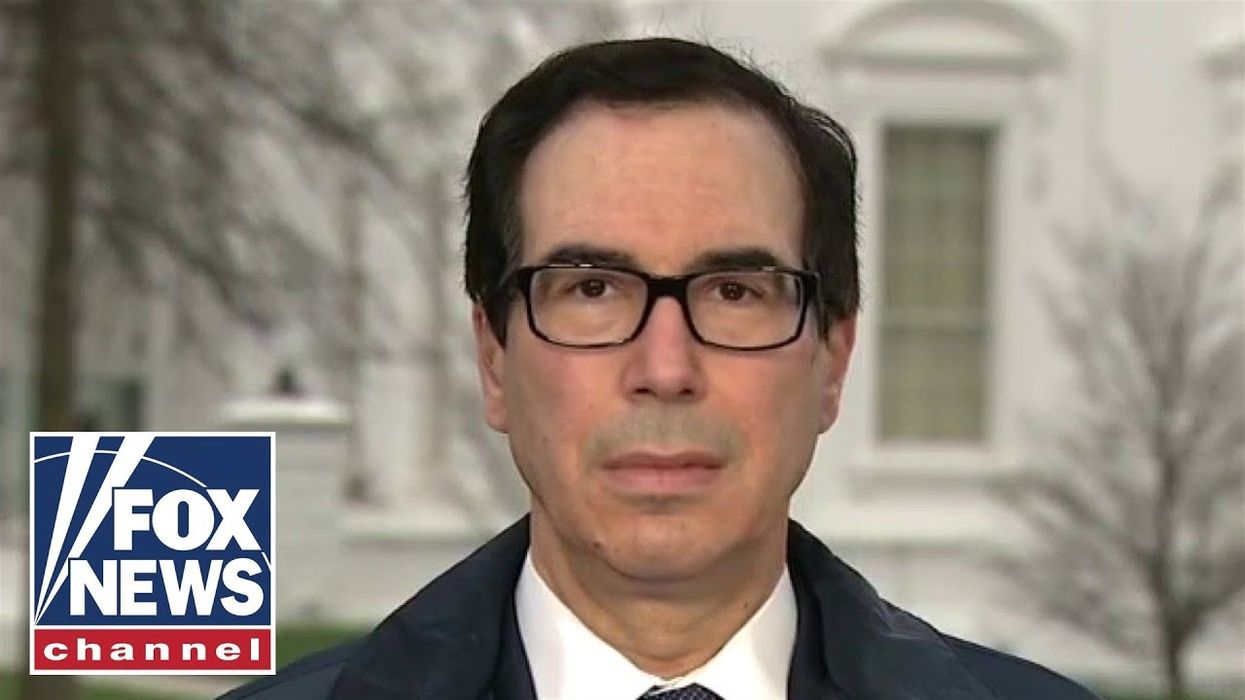Open government advocates and Democratic leaders in Congress are angry the Trump administration seems to be walking away from crucial transparency language in the economic stabilization package.
Aside from the funds to make voting safer and more convenient this fall, the democracy reform movement was pleased most by a provision in the law creating an independent watchdog to oversee a $500 billion fund to bail out companies crippled by the coronavirus pandemic.
But after signing the $2 trillion package last week, President Trump signaled he would decide what this inspector general could share with the public and Congress. And when Treasury Secretary Steven Mnuchin sought Sunday to dispel concerns about government accountability in administering the biggest domestic economic relief package in American history, he refused to pledge that the IG would be permitted to testify on Capitol Hill.
"I'm going to leave that to the lawyers, OK, and to Congress to figure out," Mnuchin said on Fox News. "We're going to have full transparency in reporting what we're doing to the American public."
Creation of the IG was a safeguard that Democrats insisted upon as a condition of supporting the corporate bailout fund at the heart of the rescue package.
The law allows the president and Treasury secretary to approve loans, loan guarantees and other aid to American companies, but with a watchdog nominated by Trump and confirmed by the Senate to oversee and audit the disbursements. Under the law, this IG has the power to demand information from the Treasury Department and other federal agencies — and is supposed to tell Congress "without delay" if any part of the executive branch is uncooperative.
Two hours after signing the bill Friday, Trump issued a separate statement that he "will not treat" that language as permitting the inspector general to report to Congress without "presidential supervision."
That declaration only buttressed the argument by Democrats and open government advocacy groups, who pressed for tough language in the measure precisely because the president has such a strong history of rebuffing efforts at congressional oversight, especially when it comes to executive branch officials seeking to reveal perceived misbehavior. (Trump's impeachment, after all, got started with a whistleblower complaint about the withholding of military aid from Ukraine for an inappropriately political reason.)
"We don't accept that. We don't accept that. We will have our oversight," Speaker Nancy Pelosi said Sunday. "It's just the same, business as usual for the president."
On Monday the nonpartisan Project on Government Oversight called the administration's moves "a slap in the face" that "signals that the administration is more committed to advancing executive branch power grabs than they are to ensuring the emergency funds go where they are needed most."
The signing statement also challenged, on constitutional separation of powers grounds, the law's requirement that Congress be consulted about the membership of a panel to be formed in the executive branch to oversee the government's pandemic response.
While such statements have no legal force, they provide a formal record of a president's understanding of a new law's meaning and serve as guidance to the rest of his administration in carrying out the statute.
Congress has no power to reverse these views through legislation, so it's unclear how lawmakers can assure the oversight they thought they'd engineered gets done. Extracting a promise from Trump's proposed IG nominee may be their best hope.
The "signing statement threatens to undermine the authority and independence of this new IG," Michael Bromwich, a former Justice Department inspector general, said on Twitter. "The Senate should extract a commitment from the nominee that Congress will be promptly notified of any Presidential / Administration interference or obstruction."
Democrats blocked the initial Senate Republican stimulus bill because of its lack of oversight language, only agreeing to the bailout fund once the IG provision was included.
Under the law, Congress is also authorized to create its own panel to oversee the use of the stimulus money and expose waste fraud and abuse, and Pelosi says that committee will be created soon and told to operate "in real time to make sure we know where those funds are."
POGO had called that language "a major victory" after getting it into the bill with the help of two senators, Wisconsin Republican Ron Johnson and Michigan Democrat Gary Peters.
"Whenever the government is trying to spend this much money, we should have good transparency and good accountability to the extent that we can," Marc Goldwein of the Committee for a Responsible Federal Budget, a nonpartisan think tank, told The Washington Post.
"We are fully comfortable that whatever we do, we want full transparency and we're very careful about supporting American workers and the American economy," Mnuchin had said on Fox.



















 A woman prepares to cast her vote on May 4, 2025 in Bucharest, Romania. The first round of voting begins in the re-run of Romania's presidential election after six months since the original ballot was cancelled due to evidence of Russian influence on the outcome. Then far-right candidate Calin Georgescu surged from less than 5% days before the vote to finish first on 23% despite declaring zero campaign spending. He was subsequently banned from standing in the re-rerun, replaced this time round by George Simion who claims to be a natural ally of Donald Trump.Getty Images, Andrei Pungovschi
A woman prepares to cast her vote on May 4, 2025 in Bucharest, Romania. The first round of voting begins in the re-run of Romania's presidential election after six months since the original ballot was cancelled due to evidence of Russian influence on the outcome. Then far-right candidate Calin Georgescu surged from less than 5% days before the vote to finish first on 23% despite declaring zero campaign spending. He was subsequently banned from standing in the re-rerun, replaced this time round by George Simion who claims to be a natural ally of Donald Trump.Getty Images, Andrei Pungovschi
Trump & Hegseth gave Mark Kelly a huge 2028 gift